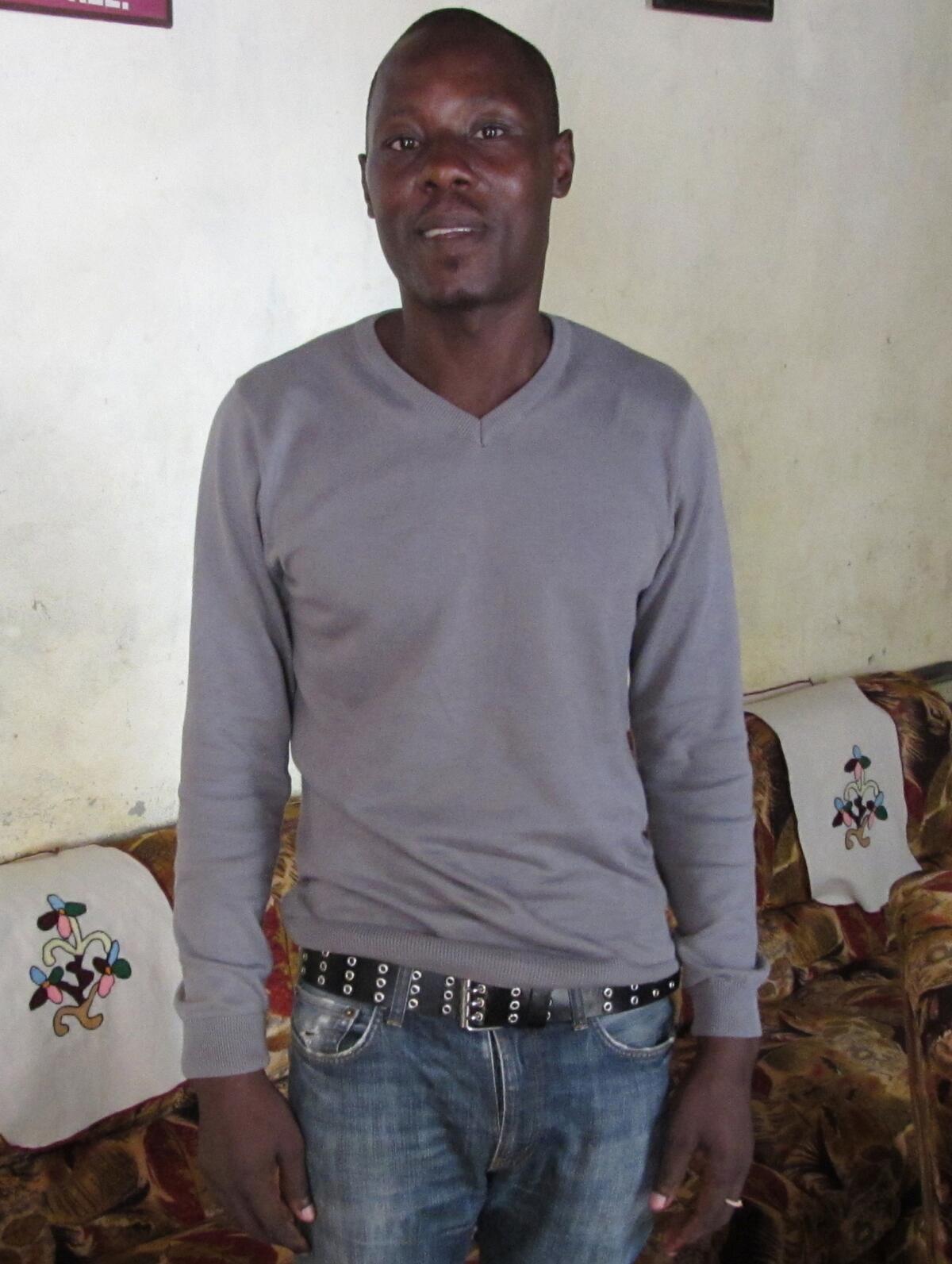A casualty of Africa’s war on gays

- Share via
DOUALA, Cameroon — For Cameroonian Roger Jean-Claude Mbede, being gay came with a prison sentence, and ultimately, a death sentence. A few weeks ago, I had to say goodbye to Jean-Claude, my dear friend and client. He died at the age of 35 in his home village of Ngoumou due to complications from a hernia he developed while in prison that never got proper treatment.
Jean-Claude was imprisoned after he sent a text message to another man, which read: “I think I am very much in love with you.” In Cameroon, because of homophobic laws that were personally championed by President Paul Biya, that was enough to be considered a criminal offense, punishable with time in prison.
Amnesty International adopted Jean-Claude as a prisoner of conscience in the spring of 2011 and mobilized its members around the world to take action on his behalf during its annual Write for Rights campaign in December 2011. In addition to thousands of handwritten letters calling for his immediate and unconditional release, in March 2012, Amnesty delivered signed petitions to Biya urging his release.
Amnesty also lighted up the Twitterverse, using social media to call on Biya and the Cameroonian government to respect and protect the rights of the country’s lesbian, gay, bisexual, transgender and intersex community. The international pressure finally became too much for the government of Cameroon, and Jean-Claude was eventually released from jail, but he was soon forced to go into hiding for his own safety.
In January, badly in need of medical care, he was prevented from getting treatment by some members of his family and his village, who viewed Jean-Claude, and his homosexuality, as a “curse” and thought it better to let him die. When Jean-Claude’s friends became concerned after not hearing from him, one of them went to check up on him. He was confronted by some of the villagers who also said it was better for Jean-Claude to die. By the time the friend had arranged for an ambulance and some friends in the military to accompany him to pick up Jean-Claude, it was too late.
Jean-Claude’s mother, who stood by him until the end, is devastated. No parent should have to watch a child die due to the ignorance and hate of others.
Before becoming a target of the state, Jean-Claude was pursuing a master’s degree in the philosophy of education at the Catholic University of Central Africa in Yaounde, Cameroon’s capital city. He was the first of his very poor family to pursue a higher education. Jean-Claude was incredibly studious, a trait that had impressed priests in the Catholic Church who had helped him pursue his education.
Despite being publicly denounced by his father and sister and surviving verbal and physical assaults while incarcerated in Kondengui Central Prison, Jean-Claude had hoped to finish his degree after his release, improve his station and help his family. Indeed, one of the things he worried about most was the impact the news of his arrest for being gay would have on the priests who had helped him so much. At the same time, he told me that his time in Kondengui Prison had been made lighter by all the letters and support he had received from around the world.
His untimely passing comes at a time when homosexuality is increasingly being criminalized across Africa. Today, it is punishable by imprisonment or fines in more than 30 African countries. According to a June 2013 Amnesty International report, “Making Love a Crime,” this is largely due to a lack of leadership by governments who refuse to meet their obligations — under international law and often their own constitutions — to protect the rights of all people living in their countries. In some countries, even failing to report alleged homosexual behavior can be punishable by law.
The same weekend that Jean-Claude died, Nigeria enacted a new law that criminalizes freedom of speech, association and assembly as well as the activities of many human rights and civil society organizations working on behalf of members of the LGBTI community. The law provides for a 10-year prison sentence for anyone who supports, meets with or forms a group advocating for human rights for LGBTI people. Reports are already surfacing of arrests of those suspected of being gay. Similar legislation in Uganda needs only the signature of President Yoweri Museveni before becoming yet another terrible law.
The Cameroonian government should investigate the tragedy of Jean-Claude’s death — and the very real role the government played in it. There must be accountability for this and similar horrendous crimes. Most important, I hope that the government learns important lessons about the impact and consequences of discriminating against and criminalizing members of its own population.
Jean-Claude only sought to experience what all of us want: the right to love, to be loved and to be ourselves.
Is this so dangerous?
Alice Nkom, a human rights attorney in Douala, Cameroon, is one of the few lawyers who has taken up defending the rights of members of the LGBTI community there.
More to Read
A cure for the common opinion
Get thought-provoking perspectives with our weekly newsletter.
You may occasionally receive promotional content from the Los Angeles Times.






